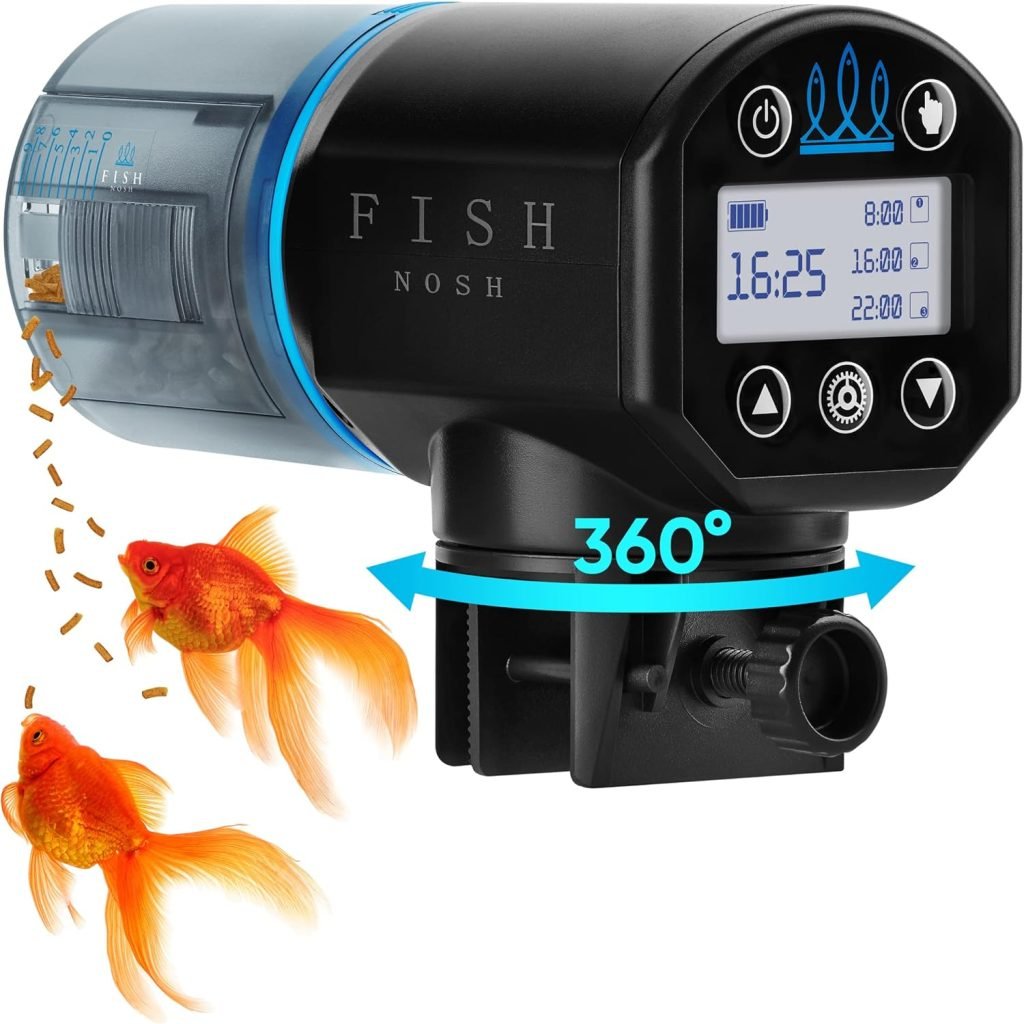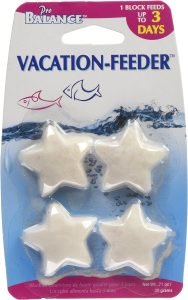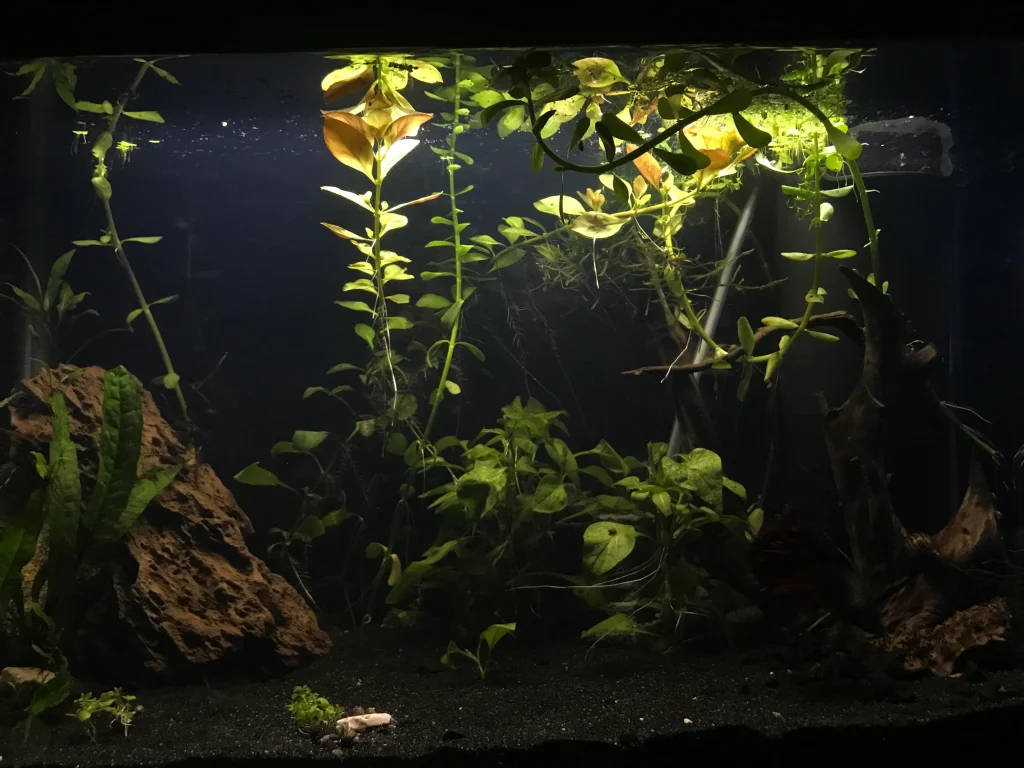How Long Can Guppies Go Without Food?
In this article, I’ll teach you how long can guppies go without food. I’ll also teach you some useful tricks if you’re going on vacation.
I hate long intros, and honestly, I couldn’t even think about a creative one. So I’m going back to basics:
Ta-da. Intro over.
TL;DR Summary
How Long Can Guppies Go Without Food
Adult guppies can go around 3-7 days without eating, but the absolute max being 2 weeks.
Water quality is more important to guppies than food, so perform special vacation maintenance before you leave to increase how long they go can without food and survive.
If you’re planning on going on vacation or simply being absent for a few days, you can lower the water temperature to about 72 F to slow down your metabolism or use an automatic feeder or vacation feed.
What's the Longest Guppies Can Go Without Food?
The maximum you can leave your guppies without food is about 2 weeks.
After the 2-week mark things start going downhill, and you open the door to disease and an overall immunocompromised system.
We’re talking about food for the most part here, almost as if it’s the only thing separating your guppies from life and death.
Remember that tank conditions are equally as important as food. In other words, if you leave them in a dirty tank- food isn’t going to be their biggest problem.
How Long Can Baby Guppies Survive Without Food?
Baby guppies, or guppies fry can survive about 2 to 3 days without food.
If you are trying to breed guppies, being absent would be a recipe for failure.
You want to feed fry about 5 times a day and leaving without food is not a good idea.
Fry are very compromised, and changing their feeding schedule so dramatically will be counter-productive to their growth and happy development.
Stretching Out How Long Can Guppies Go Without Food
Note: you may not want to feed your guppies while you’re gone. Errors will feeders are possible, and a tank crash will kill your fish way faster than a luck of food will.
Also, remember that without food there’s no poop. That means that the water is stable for longer.
Automatic Feeders

Automatic feeds are an awesome option considering you’re getting the right one.
Just know that if your guppies are hooked on live shrimp, there’s a chance they won’t go for the pellets. Hopefully, you’ve been feeding them some pellets alongside live food, but if you spoiled them rotten- that’s okay. I expected nothing less.
And hey, you can always buy one and return it (although you will get a lot of internet hate over it)
Automatic Feeder Pro's
Consistency
Automatic fish feeders are designed to dispense food at predetermined intervals, ensuring your fish receive their meals consistently.
Peace Of Mind
Leaving your fish in the care of an automatic feeder provides peace of mind during your absence. You can enjoy your vacation knowing that your aquatic pets are receiving their daily nourishment, reducing anxiety about their well-being.
Peace Of Mind
Most automatic fish feeders allow you to set the feeding schedule according to your fish’s dietary needs. You can adjust the portion size and frequency to match your specific requirements, accommodating different fish species and their feeding habits.
Easy Installation and Maintenance
Automatic fish feeders are user-friendly and typically easy to install. They require minimal maintenance, with some models even offering large food compartments that can last for several weeks, depending on your settings.
Automatic Feeder Cons
Peace Of Mind
Like any electronic device, automatic fish feeders are not immune to mechanical failures. A malfunction could lead to underfeeding, or worse- overfeeding.
It is not unheard of for automatic fish feeders to dump too much food and cause the tank water to crash.
Battery Dependency
Most automatic feeders rely on batteries or electricity to operate. In the event of a power outage or battery failure, the device may stop functioning, potentially jeopardizing your fish’s well-being.
If you are concerned about leaving your fish without any food you can set your automatic fish feeder to start feeding a couple of days before you get back.
This way you shorten how long your guppies have to go without food while minimizing the chances the tank will crash.
Vacation Feed


Vacation feeds are dry tablets that are essentially slow-releasing. In this picture- it would be the white thing on the bottom.
They work by slowly releasing food as they are not so easily dissolved. All in all, they are pretty tribble. They are great at malfunctioning- either not releasing in time or releasing all too early. Then the filter may suck it up. And worse they can could the tank water.
But let’s explore them in more detail:
Vacation Feed Pro's
Consistent Feeding
Fish vacation feeders promise to dispense food at regular intervals, ensuring your guppies receive their daily nourishment even when you’re not available to feed them manually.
Convenience
These feeders are user-friendly and easy to set up. With some, you can even stick it to the wall of the tank to minimize the filter sucking it away.
Ensure Your Tank is Cycled
A cycled tank is essential for the well-being of your guppies.
Think about it as giving them the best environment just a moment before you leave.
Hunger isn’t the only monster you’re fighting while you are away- but also waters turning toxic because of ammonia and nitrate buildup.
Why you need to cycle your tank
Cycling your tank allows beneficial bacteria to establish and efficiently break down waste produced by your guppies.
You can cycle your tank by adding gravel from an established tank or adding a source of bacteria
Uncycled tanks are risky because of the chances of an ammonia spike.
Ammonia can spike because of uncleaned organic matter that your biofilter can’t filter. In order for your filter to work correctly, it should have been in use for a couple of weeks.
Vacation Feeder Con's
Food Quality
Your guppies may not like the new, temporary food you’re offering them. The food in those feeds is designed to be slowing-releasing first- and appealing to the fish second.
Malfunction
Vacation feed can easily malfunction. That means the food can be released too quickly and crash your tank.
On the other hand, it can never be released at all
The Filter May Eat It
Here’s the thing about vacation feed- you don’t really know if it’s working only after you’ve left.
That means the natural suction of the filter currents can beat your guppies to it and for most of the food to go to waste.
Extend How Long Your Guppies Can Go Without Food By Prepping Their Tank
While guppies can go a few days without being fed, here are a couple of ways for you to ensure their survival. Remember, this is just as important as feeding.
Clean/Change Filter Media
Maintaining clean and efficient filter media is key. This is the part of your tank that sucks in toxic ammonia and produces nitrate that fish can use.
If you do opt for a filter media change, do so a few days before you leave. New filters need time for the bacteria inside of them to start being effective.
Use an aquarium cleaner to clean the sponge or canister filter media- a powerhead or a siphon will work.
Start with the dirty areas and move towards the clean portions to avoid disrupting bacteria.
50% Water Change
changing half of the water in the tank is a pretty good idea.
Just make sure that the water that you’re replacing with is treated, and has the same pH and temp as the water you are replacing.
Once changed, test your water to make sure all levels are where they should be.
This will help maintain optimal water quality and reduces the risk of ammonia and nitrate accumulation- which will help keep your fish safe.
Best Water Change Ever?
Light Timing
You need to maintain a consistent light schedule is essential for your guppies’ feeding and sleeping patterns.
Install an automatic light timer that aligns with your fish’s accustomed schedule.
Set the timer for approximately 6-8 hours per day, replicating their natural light cycle.
This will ensure they maintain their routine and minimize stress.
Lower the Water Temperature
Lower the water temperature slightly to slow down your guppies’ metabolism and extend their survival without food.
If you plan to be away for an extended period, gradually lower the temperature to around 72°F instead of the usual 78°F.
Turn down their water a degree a day, and do not lower their temp by more than 1 degree every 24 hours.
However, be cautious not to lower it too much, as excessively cold water can negatively impact their health.
Remove Dead Plant Leaves/Fish
Maintaining a clean and healthy environment is crucial for your guppies’ well-being.
Remove any dead plant leaves or deceased fish from the tank before you leave.
Decomposing organic matter releases harmful chemicals and toxins, posing a risk to the overall water quality.
By eliminating these potential sources of pollution, you help maintain a safe and thriving habitat for your guppies.
